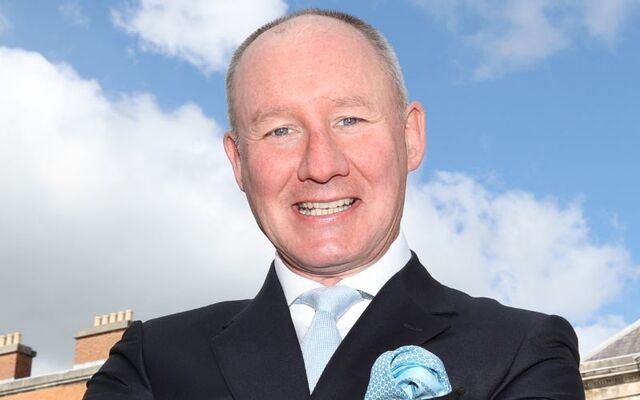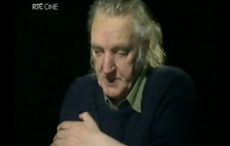Fresh from steering the Football Review Committee’s package of rule changes and motions smoothly through Congress, chair Jim Gavin sat down with journalists to field questions about what it all meant.
It was pointed out that certain changes would have implications for hurling, most obviously the countdown clock.
A football and hurling double-header such as the All-Ireland club finals will now see a countdown clock in place for football, with the standard clock that counts up in place for hurling. The issues for dual referees were mentioned too.
Gavin, though, was irritated by what was a valid question about knock-on effects.
"Just on that, just having that negativity, I have to say it surprises me," he replied. "What we want to see is people embracing them and getting that balance, to say this is a great opportunity for our games, not to be continuously searching out the dark matter in life.
"We want to say this is a great opportunity for us to move forward in our games. I’m sure whatever learning we pick up, there is a hurling rules committee and I’m sure if there are any benefits they see for that particular game – because I agree they are two separate games – that they will be moved across."
What the root-and-branch appraisal of Gaelic football by the FRC has also done is point up the need for hurling to put its own best foot forward – not so much in terms of rule change when the game is in such a healthy state; rather around development and building blocks outside the traditional power-bases or Liam MacCarthy Cup seeded counties.
Unfortunately, the hurling side of the house has had a very different time of late.
As revealed in Friday’s Irish Daily Mail, Martin Fogarty has resigned from the GAA’s Hurling Development Committee, just as the association is about to appoint a new full-time Head of Hurling.
During his time as National Hurling Co-ordinator between 2016 and 2021, Fogarty did invaluable work in growing the game and building a grassroots presence above the traditional dividing line from Dublin to Galway. He worked hard to develop a viable club base across the Táin region, which includes parts of Ulster, Connacht, and Leinster.
That is a central strategic element of the new Head of Hurling post that is being created – a post which only points to the failure of Croke Park to appoint a successor to Fogarty this past three years.
With Tipperary’s Willie Maher believed to be in the frame, Brian Cody’s former coaching lieutenant – someone who was involved in six All-Ireland successes with Kilkenny and built strong connections across the other provinces – resigned in protest at the nature of the appointment process and the treatment of various applicants.
At a time when hurling should be putting its best foot forward, it simply can’t afford to lose people of the caliber of Fogarty who would have been key to driving any new development plan under a new Head of Hurling.
That he felt compelled to resign is hugely concerning at a time when the game should be basking in the glow of a senior hurling championship that truly captured the imagination.
The quality and standard of the All-Ireland final between Clare and Cork, not to mention Cork-Limerick on the double, was up there with anything that had gone before.
Offaly won a way back to the Leinster championship via the Joe McDonagh Cup and their under-20s brought over 20,000 to Nowlan Park for an underage decider.
The club championship too has shown the game in its best light, the Ulster semi-final between Slaughtneil and Cushendall producing another extra-time thriller.
If the GAA is to truly build properly on all of that, it needs a fully functioning Hurling Development Committee and a vision for the future that all involved can believe in.
The controversial proposal last winter to axe five designated counties from National League action from 2025 was a poorly judged misstep – later walked back. So too, the alienation of certain fan bases because of the GAAGO schedule – Cork fans in particular were caught by the live-streaming paywall.
At a time when football changes are going to impact hurling, some joined-up thinking is needed more than ever. And joined up minds.
*This article was originally published on Extra.ie.




Comments